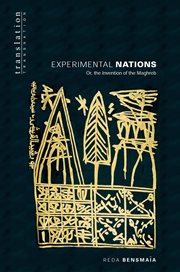Nonfiction
eBook
Details
PUBLISHED
Made available through hoopla
DESCRIPTION
1 online resource
ISBN/ISSN
LANGUAGE
NOTES
Jean-Paul Sartre's famous question, "For whom do we write?" strikes close to home for francophone writers from the Maghreb. Do these writers address their compatriots, many of whom are illiterate or read no French, or a broader audience beyond Algeria, Morocco, and Tunisia? In Experimental Nations, Réda Bensmaïa argues powerfully against the tendency to view their works not as literary creations worth considering for their innovative style or language but as "ethnographic" texts and to appraise them only against the "French literary canon." He casts fresh light on the original literary strategies many such writers have deployed to reappropriate their cultural heritage and "reconfigure" their nations in the decades since colonialism. Tracing the move from the anticolonial, nationalist, and arabist literature of the early years to the relative cosmopolitanism and diversity of Maghrebi francophone literature today, Bensmaïa draws on contemporary literary and postcolonial theory to "deterritorialize" its study. Whether in Assia Djebar's novels and films, Abdelkebir Khatabi's prose poems or critical essays, or the novels of Nabile Farès, Abdelwahab Meddeb, or Mouloud Feraoun, he raises the veil that hides the intrinsic richness of these artists' works from the eyes of even an attentive audience. Bensmaïa shows us how such Maghrebi writers have opened their nations as territories to rediscover and stake out, to invent, while creating a new language. In presenting this masterful account of "virtual" but veritable nations, he sets forth a new and fertile topography for francophone literature
Mode of access: World Wide Web







